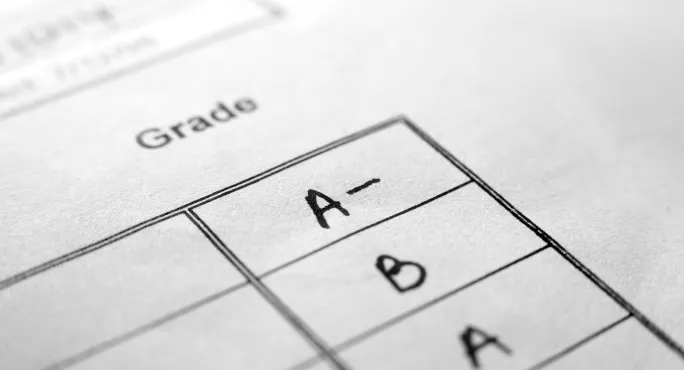Newly qualified? Here is how to predict GCSE grades

As we approach the Easter break, it is almost certain that, if you’re a GCSE English or maths teacher, you will be submitting predicted grades to examining boards for the second year running. Bearing in mind that many of your students have been studying from home, it raises the perennial question of how best to carry out fair, standardised assessments whilst ensuring your students’ wellbeing.
Of course, in the current climate, you can’t guarantee conditions that you’d enforce for traditional mock exams, with students sitting in isolation and producing their own work. Similarly, it’s clear that what your students submit in the context of their remote classes cannot be fully verified.
Skills: White Paper ‘should create three groups of colleges’
FE White Paper: Government to ‘overhaul’ accountability
Need to know: Why the White Paper has to focus on the structure of FE
This problem of predicted grades/assessments is further exacerbated with the fact that very little guidance has been forthcoming from education secretary Gavin Williamson, Ofsted, Ofqual and exam boards. It is, therefore, left to teachers like yourselves to devise multiple ways of ascertaining your students’ quality of learning and knowledge whilst minimising subjectivity and value judgement.
GCSEs 2021: Gathering data for teacher-assessed grades
So, here are my top 10 tips in gathering data regarding your students’ ability:
- Allow students to do the mock exam papers at home but compare the marks/results against their knowledge during short activities and Q&A sessions in class. That way you’ll be able to extrapolate their real knowledge from the interplay of stress, anxiety - and external influence (ie. family).
- Use carefully thought-out homework tasks to check and confirm your students’ ability level. Always give homework purposefully and not purely because your education establishment expects you to. Students will also take homework tasks more seriously if they know they have a meaning or that they fulfil a pedagogical imperative.
- Design differentiated questions to confirm individual students’ exam performance. This can be done by devising short exercises that will enable students to demonstrate their acquired knowledge. It will also reduce any psychological aversion they may have towards formal assessments.
- Use IT assessment tools such as Microsoft Forms for short written answers and multiple-choice questions. Such tools allow you to digitally record students’ marks for planning, reference and future assessments - and thereby minimise bias. Make the most of this because examining boards’ quality assurance will require this for the purpose of national standardisation of assessments.
- Give students plenty of opportunities to verbally explain components of their course, language or assessment features. This can be done during Q&A sessions in class but they can also form an extension of speaking and listening assessments. If permitted, you can also digitally record their responses.
- Apply flipped learning as a strategy to ascertain the quality of your students’ knowledge of your subject. Ask them to prepare a short presentation on an aspect of language - grammar, syntax, punctuation, vocabulary, etc. In maths, you could set them a practical task or scenario that would require them to use particular knowledge of mathematics (working out an area, carrying out multiplication or division or working out an angle or a complete complex form of trigonometry) and then to explain their approach and working-outs.
- Design short exercises to check students’ skills that they are expected to demonstrate in the exam. These exercises can be differentiated based on ability, the concept of “stretch and challenge” or gaps in students’ individual knowledge. For instance, instead of getting students to write a complete letter, break down the task as short components. This is the way many vocational Btec courses expect students to demonstrate their knowledge, often in the form of assignments. Why should English and maths be any different? These are, after all, vocational subjects with skills that are essential in everyday life, training and employment.
- Give students self-assessment exercises (in the form of traffic light) to determine their level of knowledge. These could consist of skills descriptors taken from course and exam specifications or they could be skills and competencies devised or identified by subject teachers for their individual classes.
- Organise one-to-one interviews with students to discuss their progress by making reference to their performance and attendance and identifying their individual needs and barriers to learning. Permit them the opportunity to explain their performance on your course.
- Give out the same introductory task your students completed at the beginning of the course (in September) as a diagnostic exercise to measure the extent of their improvement. Check how much learning they can demonstrate. How much distance have they covered?
Such is the sensitive nature of the pandemic that options are limited. Of course, the system of predicted grading is an unsatisfactory exercise, for no one would argue that it is completely judicious. But, as teachers, you can only try and manage the best you can.
Dr Roshan Doug is a educational consultant and FE teacher based in Birmingham. He tweets @RoshanDoug
You need a Tes subscription to read this article
Subscribe now to read this article and get other subscriber-only content:
- Unlimited access to all Tes magazine content
- Exclusive subscriber-only stories
- Award-winning email newsletters
Already a subscriber? Log in
You need a subscription to read this article
Subscribe now to read this article and get other subscriber-only content, including:
- Unlimited access to all Tes magazine content
- Exclusive subscriber-only stories
- Award-winning email newsletters